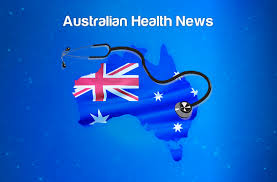 The health system in Australia is very different from the health system in Indonesia. To help you who are pondering a move to Australia or have lived in Australia, or want to know about the health system in Australia, Tito Ambyo met three people who are experienced in the field of health to figure out the best ways to access health services such as doctors or hospitals in the country. The health system in Australia is very different from the health system in Indonesia. To help you who are pondering a move to Australia or have lived in Australia, or want to know about the health system in Australia, Tito Ambyo met three people who are experienced in the field of health to figure out the best ways to access health services such as doctors or hospitals in the country.
Michal Morris is the manager at the research center Centre for Culture, Ethnicity, and Health in Australia. While Hok Lim and Ozge Tanrikut are following graduate programs in the health field.
Here are their tips if you want to use the health system in Australia. You can listen to their suggestions in English audio. If you have any questions, please write the questions below this page!
1. Go to the hospital only for emergencies.
Emergency services in the 'casualty' or 'emergency' in public hospitals and some private hospitals in Australia. Find out the location of the nearest hospital, so that you can go to the hospital if there is something that requires emergency treatment.
If you can not go to the hospital alone, you can call an ambulance or telephone number '000'. You may have to pay for treatments that require an ambulance.
2. Visit the General Practitioner (GP) for a health problem that is not an emergency.
'GP' is a general practitioner who must first time you encounter that has health complaints. They can also give advice about health, even when you are not sick. For example, if you often feel a headache or if you want to know more about how to live a healthy life. There are many general practitioners can be visited in Australia, and make sure you feel comfortable with the GP of your choice.
3. Get ready to discuss with your doctor.
In Australia, doctors are trained to carry out consultation and discussion with the patient. Usually, they will not only give the drug without explaining to you what the drug actually. And in fact, they are also likely to find out about your health problems on the internet together with you, to help you better understand what exactly the health problems that you face.
So, be prepared to talk and explain what health problems you worry. If you are not sure of your ability to explain, do not be afraid to ask for help from friends or family who can you trust. Or, when you make an appointment to see the GP, explain that you need help in communicating.
What is important, because you only have 15 minutes to consultation with the GP, be prepared to provide information that is as clear and as short as possible to the GP.
4. Bring the information regarding your medical history.
More information you can provide, the better. If you see GP for the first time in Australia, take medications you are currently using, or information about your health condition, even if the information is in Indonesian.
5. Seek help and information in the Indonesian language.
In Australia, you often can find the information in the form of brochures about health in a variety of languages, including Indonesian.
6. Bring someone to help you.
As a patient, you have the right to bring a friend or family member to help you. You can also ask for help from a professional translator to help you communicate with your doctor in Australia regarding your health issues.
7. Do not wait until it's too late. Better to prevent than cure.
In Australia, there are many programs 'screening' and other health programs that are helping to prevent illness or detect it as early as possible. This is why the health system in Australia is called 'preventative', aka system that is more focused on prevention.
Examples of this prevention program is a national immunization program, which also exist in Indonesia, and a free screening program that could help detect some types of cancer as early as possible.
In Australia, for example, you can get immunization shots before winter to prevent the flu. Also free vaccination for certain groups for some kind of virus caused disease. If you want to know more about these prevention programs and how to get it, you can ask a GP.
8. Find out about the cost.
Permanent residents and citizens of Australia getting many types of health care for free or at discounted prices through government health insurance system called 'Medicare'. While international students or tourists in Australia have to buy their own health insurance to pay for health care costs. Learn what is your obligation, and find out about how much the cost of health services in Australia.
|